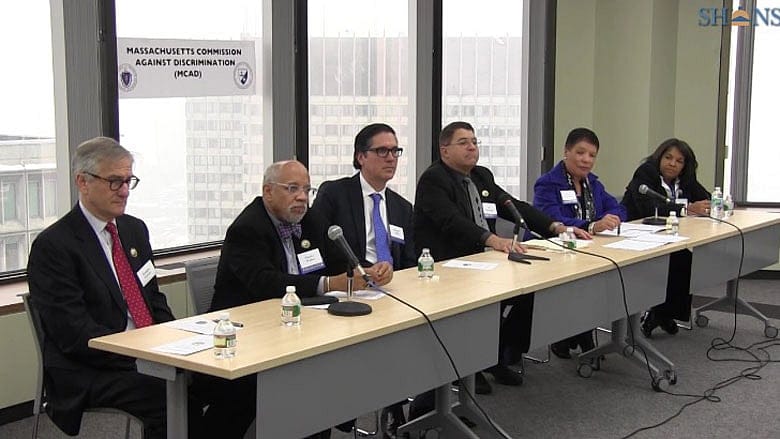On anniversary, officials assess anti-discrimination efforts

BOSTON — Past and present leaders of the Massachusetts Commission Against Discrimination recently debated the roles of funding and promotion in addressing an agency beset by a heavy caseload of thousands of discrimination complaints.
During a Feb. 5 panel discussion with five other current and former MCAD commissioners to mark the 70th anniversary of the agency's establishment, chairwoman Jamie Williamson said repeated requests for more aid have been made and questioned the commitment to eradicating discrimination in Massachusetts.

